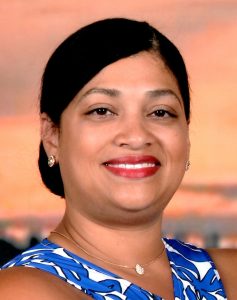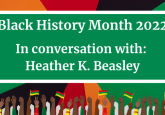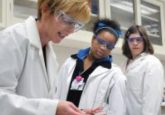Elsie Spencer on diversifying the STEMM pathway

Dr. Elsie Spencer (below) is a Postdoctoral Fellow in the Hinton Lab at Vanderbilt University (TN, USA), whose research focuses on diversity, equity and inclusion (DEI) within higher education and the (Science, Technology, Engineering, Maths and Medicine) STEMM pathway.

Spencer serves as the Administrative Director for the National Center for Children and Families and at the Consortium for Policy Research in Education at Teachers College, Columbia University (NY, USA). Spencer writes about the importance of mentoring and the power of community, reminding us that scientific progress cannot be achieved alone, but is a collaborative and collective effort.
Please tell us about yourself and how you got to where you are today.
An Afro Latina and native New Yorker, I am a first-generation graduate who hails from Cuban and Colombian roots. I received my Ed.D. from the University of Pennsylvania (PA, USA) in Higher Education Management and my M.P.A. from the School of International and Public Affairs at Columbia University. My passion and expertise traverse higher education, specifically on diversity and equity initiatives and promoting community involvement across all levels of senior leadership. I am a powerful advocate for community initiatives and collaboration across borders to improve the educational outcomes of underserved populations.
I have published articles in high-impact journals on various topics such as STEMM pipelines, postdoc and faculty recruitment in STEMM fields, and the important role of mentoring in promoting DEI in STEMM. I was listed in Cell’s “100 Inspiring Hispanic/Latinx scientists in America” and I am known in my community as a key partner and thought leader for local and global initiatives. My goal is to continue to perform different outreach initiatives with various community members and anchor institutions throughout the city.
Could you tell me more about your research?
I have been collaborating with Antentor Hinton, Jr. and other thought leaders and faculty across the higher education diaspora since 2020. I have published and brainstormed ideas centered on DEI initiatives within academia and research. My goals include being a tenured faculty member, and to lead a large diversity center at a research institution as well as continuing to create pathways for BIPOCS in STEMM.
In your career, have you ever felt that you were at a disadvantage because of your race or gender?
Yes, there are times when I have felt that I was at a disadvantage because of my race and because of my gender as a woman in academia where men dominate key leadership positions in departments and the institution overall. But being disadvantaged has allowed me to reinforce my determination to fulfill my goals.
 In celebration of Black History Month: a conversation with Nathan Anthony Smith
In celebration of Black History Month: a conversation with Nathan Anthony Smith
We chat to Nathan Anthony Smith, a neuroscientist and incoming Associate Dean of Equity and Inclusion at Rochester School of Medicine and Dentistry, and discuss what he hopes to bring to his new role, and more!
Are there any key resources or places that you found support when facing challenges?
The resources I have often used are my BIPOC colleagues who understood my challenges and offered a support system that helped me navigate specific challenges, like environments that were not welcoming for BIPOCs in the workplace, unintentional biases, and forming proper discourse on issues pertaining to cultural humility and awareness. Having this type of support allowed me to use these experiences to develop resiliency in a field that is often riddled with limited opportunities for upward mobility and professional development and sparse representation of BIPOCs in the upper rings of academia.
What is your greatest achievement?
My greatest achievement is two-fold: having my parents witness my attainment of a terminal degree in higher education and being an example to my son that with hard work, self-respect, and dedication, the sky’s the limit.
What advice would you give to young Black scientists to help them thrive in the scientific field?
Thriving in the scientific field is a group effort. It takes a village to raise a scientist! No matter how alone or difficult the field can become, know that there are always people there to help along the way, whether it’s your family, mentors, or church and other leaders in your community. Always put yourself in a position to receive the support they can provide to uplift you and strengthen your commitment to science and research. As BIPOCs we have a strong sense of community to support each other and to pay it forward to all those who follow in our paths.
Is there anything else you’d like to mention?
Continue to work hard but also take breaks to regroup so you can be at your best. Find a networking group that will support you, pray with you, cheer you through all your successes and lift you back on your feet when you fall on your knees. This is the true meaning of success and achieving your purpose in life.





